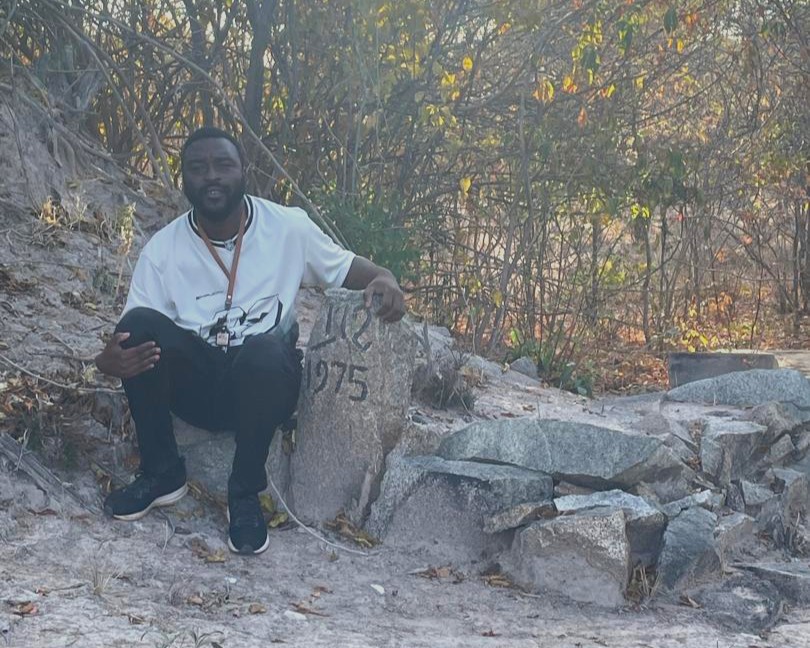I’ve just returned from a soul-scorching weekend in Gokwe. No, not on some influencer retreat, but to stand on the dry earth where my grandfather was buried in 1975 — after dying while looking after his sick sister, a woman married off and moved away during one of those quiet displacements we’ve now learned to politely call “colonial history.”
My family had been moved from Marondera — kicked off our ancestral land like bad tenants in a house we built. Our great-grandfather Masimba was buried up on a hill there. And yet somehow, by the time my grand-aunt was a child, they were being relocated to Wedza under the Land Apportionment Act. Except no one explained it like that to her. All she knew was: white people came, and we had to go. Simple. Brutal. No press release. Just goats, kids, pots — and generations of loss.
And you want me to feel sorry for white farmers?
You want me to hold space in my heart for 49 white South Africans now being labelled “refugees” in the U.S. because the land they stole is finally being questioned? Excuse me?
Where were the humanitarian flights when we were being forced out of our homelands? When our fields were burnt or fenced or fenced then burnt? Where was the “sympathy for the displaced” when my great-grandfather’s grave was no longer welcome in the country of his birth — because a stranger decided to turn the hill into a tobacco empire?
Let’s stop pretending that history began in 2000.
Let’s stop pretending land reform is some new chaos that came out of nowhere like a drunk relative at a wedding. This chaos was imported on a ship, dressed in colonial law, and armed with a Bible, a gun, and a surveyor.
“But my grandpappy bought this farm legally in 1952.”
Cool story, coloniser.
Was the land sold by the original owners? No. It was allocated through a racist, legislative land snatching scheme that said if you weren’t white, you basically didn’t exist on paper. Your farming traditions? Invalid. Your shrines? Irrelevant. Your ancestral claims? Obstructing progress.
This is like someone breaking into your house, sleeping in your bed for 70 years, then calling the police when you knock on the door asking for a blanket.
Here’s what people don’t get:
Land isn’t just economics. It’s identity.
When we were pushed out of Marondera and forced into scattered districts like Wedza or Gokwe, we weren’t just losing land. We were losing memory. Language. Names. Rituals. Food systems. A hill where your great-grandfather is buried is not just soil — it’s story. Culture. Bloodline.
The land had our footsteps in it, but they bulldozed over them and planted maize.
So when I hear these 49 white South Africans crying about their farms being “taken,” I want to throw a brick at my laptop.
Refugees? You’re not refugees, you’re just former beneficiaries of a racist property scam that finally got flagged. You weren’t displaced, you were dispossessors — now shocked the con is up.
It’s like the guy who cheats on his wife for 40 years crying that she finally changed the locks.
And no, I don’t hate white people.
Some of my best friends are white. I’ve laughed with them, worked with them, cried with them. But if you can’t acknowledge that you — yes, even you, sweet Paul with the solar panels and yoga classes — are standing on benefits that came from theft, then you’re part of the silence that keeps us colonised.
Because colonialism didn’t end in 1980. It just got gentrified.
We’re still getting asked to “move on” while you build Airbnbs on stolen hills.
Let’s be clear:
There’s enough land. There always was. But there’s never been enough justice. And justice means redistribution. Not through bloodshed. Through accountability. Through systems. Through truth. But you can’t start that truth if all your maps begin in 1900.
If we truly want a future where we all eat — where Zimbabwe and South Africa and every post-colonial country stops tripping over its inheritance — then the first step is calling it what it is:
You took our land. You built on our graves. Now you want a pity visa? F* outta here.
I’m still angry. I’m still hurting. But I’m also still hopeful — that maybe, if enough of us write, talk, scream, joke, cry, and remember — we’ll dig our way back into the soil and plant something better.
Not just maize.
But memory.
And then, maybe — finally — peace.

